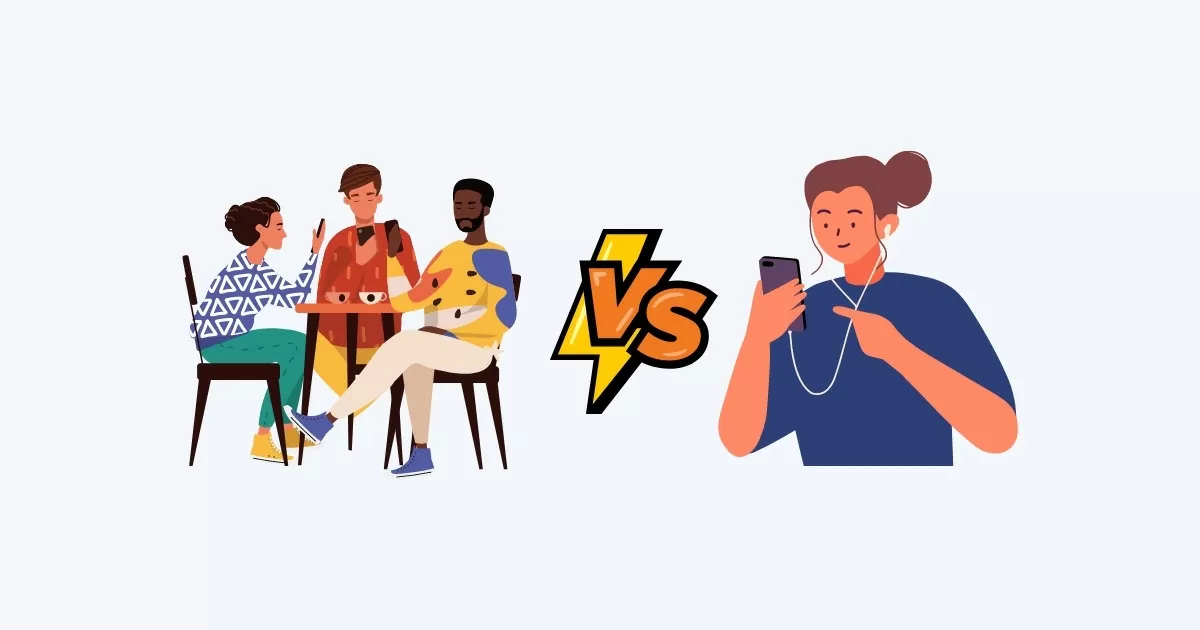Due to newly emerged social movements, developing technologies, and different perspectives, generations have diverse expectations, dreams, and needs.
Generations are quickly replaced by the following ones because of the bustling changes in circumstances.
So employers must adjust to every age’s ideal customer experience in terms of understanding and fitting into their target audience’s expectations.
From the beginning of the 1980s until the end of the 90s, millennials pursued their dominance over time. After that, Gen Z freshly came into existence, and it includes those who were born between the 90s and 2010s.
They have totally new needs, expectations, and demands from a customer experience.
What is a Millennial?
Millennials, also called Generation Y, are the first generation that grew up with a digital experience.
Let’s get to know millennials better:
- Gen Y is famous for asking the question “Why?” before following a trend or a leader. They question and criticize more than earlier generations.
- They are prone to be motivated by meaningful things such as gifts, creative work, and their community’s support. They choose immaterial over the material.
- Millennials are engaged with their superiors in terms of collaboration. They care about their relationships.
- Relationships with not only their superiors but also their teams are also valuable for millennials.
- Because of their exposure to technology throughout their lives, millennials can adapt to new technologies easily.
- Millennials are more educated than the previous generations. They have a passion for learning.
Thus, one might say that millennials seek unity with their teammates in a passionate, open-to-learning, technological environment.
To maintain this environment for millennials to get a more enjoyable customer experience, you might consider using more intimate language.
In accordance with the statistics of Edelman, nowadays, consumers are more attracted to a service that cares for the world holistically.
Using “we” instead of “me” is important for the millennials.
What is Gen Z?
After the 90s, millennials were replaced by Gen Z.
Gen Z is a digitally native generation because in the world they were born into, e-technology ranks first.
Gen Z grew up with smartphones and a vast connection to the internet. They had access to social media anywhere, all the time.
Gen Z is more than just a digital native. They are known for their unique characteristics, such as:
- Gen Z is more pragmatic, unlike millennials.
- Gen Z also matures earlier than the previous generations.
- Getting a higher education is also a common thing for Gen Z.
- The internet is the primary knowledge base for Gen Z to look at the review for products.
- Gen Z looks for the responsibility and purpose of including people from more diverse backgrounds in a brand.
Gen Z includes considerate individuals who grew up in a digitally based community, and they use the internet to reach pretty much every service that they need.

Contact Center Expectation Similarities Between Millennials and Generation Z
Even though they belong to different generations, millennials and Gen Z share some similarities when it comes to expectations from a contact center.
For example,
- Both generations expect quality and efficiency in the service.
- For Gen Z and millennials, self-service brings satisfaction in terms of getting their answers solely from online resources.
- Multi-channel service is also preferable for Gen Z and millennials.
Quality and Efficiency
Millennials and Gen Z desire to solve their problems quickly. Since they are accustomed to reaching any efficient information they want through the internet, providing a service of high quality is crucial.
Statista’s statistics show that 61% of millennial consumers in the U.S. are willing to pay more for qualified customer service.
Efficient and qualified customer service enormously affects whether the customer will buy your product. Having a call that sounds bad, not being able to have the information they seek, or having a mediocre conversation all threaten the possibility of your customer’s satisfaction.
At Call Center Studio, we can help you to manage customer interactions, monitor call volume, and quality track KPIs for better customer service.
Self-service
Both Gen Z and millennials choose to find solutions online. Otherwise, they get frustrated.
Gartner says that 75% of Gen Z and 62% of millennial customers prefer to seek knowledge from third-party customer service channels such as social media or Google search.
If you want to adjust to your customers’ needs and enhance your customer service by creating FAQs, online forums, intuitive chatbots, and messaging APIs, contact us to book a demo of our self-service support.
Multi-Channel Service
Gen Z and millennials began to communicate online since it is significantly easier and quicker to use. This situation led to an increase in the usage of the social messaging apps like WhatsApp.
Smooth transitions across channels without losing information are also crucial for customers to have more unified and consistent customer interaction.
WhatsApp offers 24/7 access for your customers. To ensure better customer service by enabling various channeling in WhatsApp Business, contact us now.

Contact Center Expectations of Gen Z
Besides the similarity of expectations with millennials, Gen Z has unique demands. There are lots of things to innovate and adapt to their needs.
- Since they spend a significant amount of their time online, they expect to access brands through mobile apps.
- As we mentioned before, they demand social responsibility and authenticity. They prefer brands that have distinct social positions.
- Gen Z is less concerned about data privacy.
- They expect instant payment methods.
- According to Salesforce, 77% of Gen Z expect alternative ways of getting products, such as digital versions of in-person experiences.
Wrapping Up
Although they have significant differences, Millenials and Gen Z share some similarities too.
By adjusting to various expectations of your customers, you can provide a much more preferable customer experience.
To keep the primary relationship between your customer and your products, a happy customer experience is a must.
In order to maintain a happy customer experience, consider the expectations of Gen Z and millennials.




